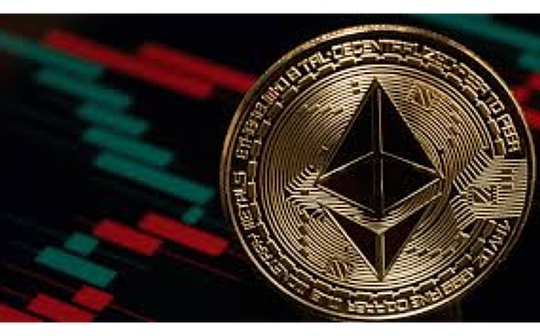About RPL
Official Website
Social Media


Frequently Asked Questions
What Is Rocket Pool (RPL)?
Read MoreRocket Pool is a decentralized Ethereum staking pool offering up to 4.33% APR for ETH2 staking. Users can join the Rocket Pool with its decentralized node operator network or run their own nodes with only 16 ETH. In the latter case, they can earn a commission from staking ETH and earn additional RPL rewards from providing RPL collateral, amounting to up to 6.36% APR for ETH and the additional RPL rewards.
Rocket Pool provides liquid staking, meaning users benefit from an increasing exchange rate instead of adding on to their initial staked collateral, which would be a taxable event. Furthermore, Rocket Pool offers smart nodes: a custom node software allowing anyone to run a node on its network. With losses from bad nodes distributed across the network, individual users minimize their risk of facing penalties. This is supported by the pool’s open-source and audited smart contracts, which guarantee fully non-custodial staking and a maximum degree of decentralization.
Who Are the Founders of Rocket Pool?
Read MoreRocket Pool was launched by David Rugendyke, a senior developer with a computer science background who started designing Rocket Pool in late 2016. He is supported by General Manager Darren Langley, an executive with over 18 years of commercial experience in managing and mentoring development teams, designing application architecture, and delivering exciting digital products for government and financial services. The team is complemented by three blockchain and Solidity engineers with a combined 40 years of experience.
What Makes Rocket Pool Unique?
Read MoreRocket Pool essentially offers anyone to participate in ETH2 staking, regardless of their capital investment or level of technological sophistication. Its core premise is to enable the trustless staking of ETH to a network of decentralized autonomous nodes that are underpinned by RPL collateral.
Rocket Pool sees itself as a complement to staking-as-a-service providers. These providers can choose to maximize returns by joining Rocket Pool and running a node, which they receive rewards in ETH and RPL for in return. In this manner, even a big player like Gemini could use Rocket Pool by creating nodes that stake 16 ETH each. This is where Rocket Pool’s staked ETH wrapper rETH comes into play.
rETH is a tokenized version of the staked ETH in Rocket Pool, which allows stakers to engage from 0.01 ETH to up to 32 ETH. By staking their Ether, users receive rETH in return, which automatically accrues staking rewards based on the performance of the entire network of node operators. The value of rETH is protected against slashing through insurance mechanisms, with node operators staking RPL on nodes as collateral for any penalties they incur.
The second way of interacting with Rocket Pool is through Node Staking. Users can deposit 16 ETH and are assigned an additional 16 ETH from users who are depositing ETH and receiving rETH. In essence, you stake your own 16 ETH and 16 ETH on behalf of the protocol. Rocket Pool automatically adjusts its commission rate based on the supply and demand of node operators and available ETH. With this model, node operators are rewarded for providing insurance for stakers in case they are penalized or slashed. Furthermore, node operators must deposit a minimum amount of RPL as a collateral.
How Many Rocket Pool (RPL) Coins Are There in Circulation?
Read MoreRPL follows a different approach than most fixed-supply DeFi tokens and introduced a 5% annual inflation. The protocol argues that any value-generating protocol will need to reward its participants. A fixed-supply model would result in this value being generated at the expense of its users.
The newly issued RPL tokens will be emitted as follows:
- Node Operators staking RPL as insurance collateral (70%)
- Oracle DAO members providing various oracle data (15%)
- Protocol DAO Treasury to fund decentralized development (15%)
This model is designed to incentivize the protocol’s key stakeholders and funds further decentralized development. The Oracle DAO members consist of node operators, ensuring that oracle data is reported correctly to the protocol, while the Protocol DAO governs the protocol’s treasury. At the time of writing, the supply of RPL is just over 10 million.
How Is the Rocket Pool Network Secured?
Read MoreRPL is an ERC-20 token on Ethereum. Rocket Pool has been successfully audited by three separate firms: Sigma Prime, Consensys Diligence, and Trail of Bits. It also runs a bug bounty program to incentivize keeping its protocol safe.
Furthermore, governance of Rocket Pool is split across its Protocol DAO and Oracle DAO. The Protocol DAO is responsible for settings like RPL inflation, rewards, and auctions, the staking requirements and commissions for nodes, and deposits. The Oracle DAO bridges the smart contracts between the Beacon Chain and the ETH1 main chain. Members of the Oracle DAO are several big ETH2 staking clients like Lighthouse, Nimbus, Prysm, ConsenSys Codefi, Blockchain Capital, Bankless, and others.
Where Can You Buy Rocket Pool (RPL)?
Read MoreRPL is available on UniSwap (V3), Hoo, BKEX, XT.COM, Hotbit, and Bvnex. If you want to learn more about how to start buying cryptocurrencies, you can read more here in our guide.
What is the all-time high price of Rocket Pool (RPL)?
Read MoreThe all-time high of RPL was 154.73 USD on 2021-11-16, from which the coin is now down 98.90131196277387%. The all-time high price of Rocket Pool (RPL) is 154.73. The current price of RPL is down 98.90131196277387% from its all-time high.
How much Rocket Pool (RPL) is there in circulation?
Read MoreAs of
, there is currently 22.20M RPL in circulation. RPL has a maximum supply of 0. What is the market cap of Rocket Pool (RPL)?
Read MoreThe current market cap of RPL is 37.83M. It is calculated by multiplying the current supply of RPL by its real-time market price of 1.70.
What is the all-time low price of Rocket Pool (RPL)?
Read MoreThe all-time low of RPL was 0.09117516
, from which the coin is now up 1764.542930333218%. The all-time low price of Rocket Pool (RPL) is 0.09117516. The current price of RPL is up 1764.542930333218% from its all-time low. Is Rocket Pool (RPL) a good investment?
Read MoreRocket Pool (RPL) has a market capitalization of $37.83M and is ranked #556 on CoinMarketCap. The cryptocurrency market can be highly volatile, so be sure to do your own research (DYOR) and assess your risk tolerance. Additionally, analyze Rocket Pool (RPL) price trends and patterns to find the best time to purchase RPL.











